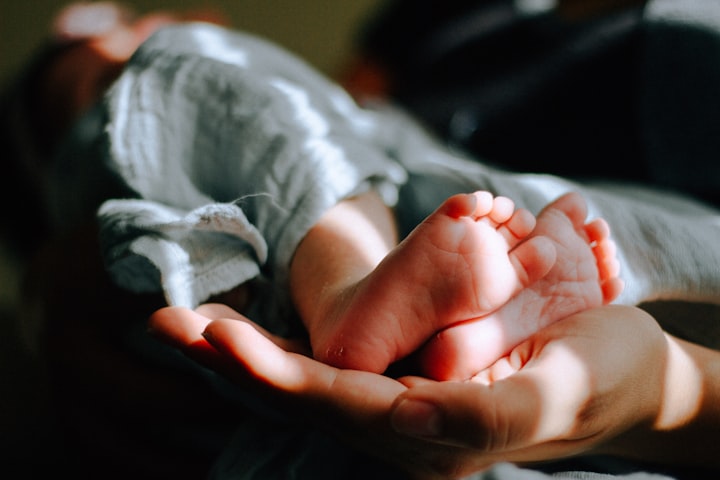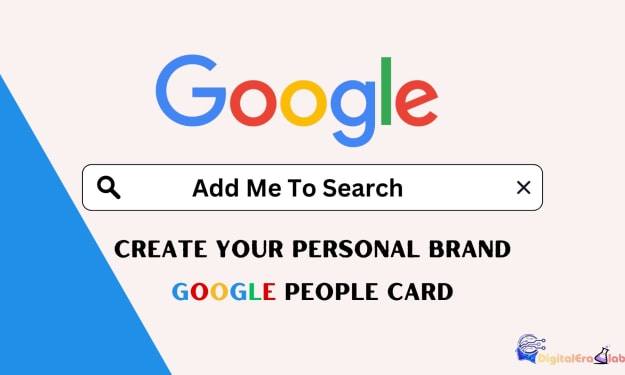
If anyone uses the word “natural” to describe breastfeeding to me ever again, I cannot be held liable for my reaction. There was nothing that was natural about breastfeeding as far as I was concerned. Sure, when I was pregnant, I had every intention to breastfeed. I bought a pump. I bought a ton of storage bags for the copious amounts of breastmilk that I was going to store away in my freezer like a good little mother. I bought nipple cream and breast pads, because of the warnings that women had given me about just how miserable my breasts were going to be. Yes, I had read the books telling me that breastfeeding was going to be “hard” and “frustrating,” but I just needed to stick with it because if you give your baby formula, you are the devil (obviously, they didn’t use that word, but it was generally implied with all of the literature). Whenever I would read pros and cons, the breastfeeding section had a long list of pros for the child and one to two cons for the mother, but the formula section was pretty much all pros just for the mother. You’re selfish, remember?
About an hour after my baby was born, he was able to latch onto my breast. The first time hurt, mostly from him fumbling around for suction, but it wasn’t horrible. However, every two hours after that when he tried to feed, I slowly started to dread every single time he was going to nurse. My baby, after that initial latch, never really latched properly again. Part of it was that I would so brutally tense up from the pain that was about to come on (a pain that felt like 100 little sewing needles jabbing into your nipple at the same time) that he probably didn’t have a great shot to begin with. Besides that, I knew my baby was hungry because he wasn’t getting much from me.
Every time I called for a nurse to help me when I tried to feed him, my frustration utterly grew because each nurse would offer me advice that contradicted what the previous nurse had suggested. Nurses are amazing human beings who do a job I would never survive doing, but I was getting frustrated. In the end, it was another nurse that was a lactation consultant who literally told me that breastfeeding was not worth it for me. It came down to my mental health, and she supported me in picking my mental health.
I remember asking one of the nurses if I could have a little bit of formula to give him to which her prompt response was, “no, I don’t think you want to do that. Just keep hand expressing.” If you are unfamiliar with hand expressing, it basically means you are expected to squeeze the crap out of your boobs just to get some miniscule drops of colostrum that you squirt into a tiny medicine cup that your baby is then given in a syringe. In that moment of being physically drained from birth, my son was hungry, and I had been denied sustenance for my son, I cannot convey how utterly devastating and damaging that was. My son and I had been made to feel inadequate, and when I asked for help, I was denied. I left the hospital the next day in irrational fits of tears because I was petrified my son was going to go hungry. And he did (go hungry) for a few hours at home until my husband went to buy formula, because I couldn’t take the agony of hearing my son cry anymore.
When we got the formula, the only reason we knew what to do with it is because my mom’s best friend is a nurse, and she told us how to properly prepare it and how much to use. In my prenatal class, another father in the room had asked about formula preparation. The instructor of the course literally said, “we don’t discuss formula here,” as if he was asking her the most efficient way to ingest Fentanyl. Not only did I think this was unrealistic, but I also thought about how that was even discriminatory. What about couples who adopt? Surely, they have to use formula. Or what about a male couple who adopts children, they don’t even have the option for milk producing breasts. It was in that moment that I realized just how vilified formula was.
I gave actual breastfeeding a shot for about 48 hours. Then, I made the decision to exclusively pump. That was twice the work. Not only do you have to sit there and feed your baby, but then you have to disappear to pump (because there is usually a visitor over). The worst part was having to set multiple alarms throughout the night to wake me up, so I would drag my recovering, depraved body out of bed just to attach a device that felt like a Dementor sucking my soul out through my nipples.
Then, at about a week and a half, I got a fever. Not an “I’m kind of sore and need a Tylenol to sleep” fever. I mean a fever that left me alternating every hour between sweating and being cold. I would sweat to the point that my shirts were drenched through entirely, but then be so cold that I would put on a long-sleeved shirt, a hoodie and two pairs of pants. The next morning, I frantically called my mom in tears because my husband was leaving for work, and I knew I was not going to be able to take care of my baby. My mom came over, and she took over feeding the baby with the leftover breastmilk from the day before and with the new formula we had in the cupboard. I stayed in bed for a full 24 hours. I literally did not move, except to take layers on and off. When my mom brought me what little food I could manage to swallow, I barely opened my eyes. She generally brought the baby in every few hours, just for me to see him, and I spent the rest of the day in darkness. The next day, I felt a little bit better and was able to get out of bed. I had every intention of trying to pump again until all hell broke out 48 hours later.
It was a Monday night, and all the symptoms of my fever from the previous night hit again. I, again, frantically called my mom in the morning. She rushed over again, and my husband went to work. I felt the need to stay in bed again, but after a few hours, I knew something was very, very wrong. Not only was my temperature fluctuating drastically, but I was shaking uncontrollably, and I couldn’t stand. I got so disoriented and dizzy that every time I stood up to go to the bathroom, I needed to call out for help. Then, there was the pain in my abdomen. A pain that was so fierce it felt like I was in labor again. I screamed every time I stood up, and I had never screamed in labor. Something was very wrong.
My mom called my husband at work, and he came home to take me to the hospital. After an entire run of tests, and my husband pushing me around the hospital in a wheelchair because I could not walk, I was told I had a uterine infection, resulting in endometritis. Basically, my uterine lining, which was supposed to be growing inside my uterus, forgot how to do that, and instead, decided to grow on my fallopian tubes and my ovaries. I also had mastitis in both of my breasts. To say that it was painful is the greatest understatement in this story. The head nurse quickly prescribed me a round of antibiotics, and I was sent home. When we were leaving the hospital, it dawned on me just how many countless women in history have probably died from the same infection I had, and the reason I was going to be okay was because of something as simple and easy to get as an antibiotic. It really does make you grateful to have a child in modern times in a developed country. The fact that maternal death is still a leading cause of female death around the world no longer shocks me after having gone through the process; in fact, it just saddens and humbles me.
By Tuesday afternoon, I set up camp in our spare bedroom. My husband was able to stay home for a week, and as the baby was sleeping in our room in the bassinet, my husband spent the nights tending to him, and I slept separately. I didn’t leave that bedroom until Saturday.
The only time I got out of bed was to go to the bathroom, and even then, I needed help. I say without any facetiousness that from Tuesday evening until Thursday morning, I thought I was going to die. I had never been so debilitated in my life, and I was in so much agony, I thought death was a way out. My husband told me after the fact that he had almost gone to bed in tears on Wednesday night because we had no idea how this was going to get better. Miraculously, and you know, science, my fever broke on Thursday morning.
What occurred on Wednesday night can convey just how ill I was. My husband had left a glass of water on my bedside table. At around three in the morning, I was so thirsty, I opened my eyes and stared at the glass. I stared, and I stared, and literally did nothing else. This went on for half an hour. I was so agonizingly thirsty, but also so terrifyingly weak that I physically could not reach my arm out of the bed or lift my head high enough to drink a glass of water.
Now, while all of this was happening, there was, of course, a two-week old baby in the house. At the hospital, it was suggested to me that while I was in my comatose state, someone could bring the baby into the room, grab my breast for me and force the baby to latch. That didn’t sit well with me. Having anyone (I didn’t care if it was a nurse, my husband or my mom) physically have access and control of what my body was doing and when it was doing it was not okay with me. Not only did that make me uncomfortable, but it also just felt like a complete violation, and that wasn’t going to fly. Breastfeeding is for your child, but the breasts were still attached to my body, and therefore under my jurisdiction. By that point, the pumping had become exhausting, and my nipples were so raw that blood was making its way into my son’s breast milk, so now, I was just going through all of that pain to dump it down the drain. Having someone else tell me that it was okay to let another person manipulate my breasts because I was physically too weak to handle them myself was endgame. I was done with breastfeeding.
I don’t want you to think that decision came lightly. Without a doubt, that was the most difficult decision I have ever made in my life, and I cried about it for the first month afterwards. I cried whenever I saw another mom breastfeeding. I cried when I would go to my doctor’s office and be met with judgments about why I wasn’t breastfeeding. I cried, and I cried, and I cried because I had been so pulverized by the idea that somehow if I didn’t breastfeed, it meant I didn’t love my baby. That I was selfish. The same lactation consultant who felt YouTube videos would help me breastfeed told me that I was making more work for myself because I was going to have to prepare and wash bottles, and she had “my best interest at heart.” I felt like I had given up and that I had somehow done irrevocable damage to my son.
Now, as I write this, he is four months old. He eats every day when he wakes up, then at 11:00, at 3:00 and at bedtime. Once the raging hormones wore off, and my rational brain made it's return, I made peace with the fact that giving him formula didn’t make me a bad mother, and the suggestion that somehow my son was going to be deficient because of formula reflects more on someone else's ignorance than anything else. It was only after talking to other moms that I realized how many had also given their babies formula, maybe not exclusively, but they had struggled with breastfeeding too. They had all struggled without infection and told me that the best thing I could do for my son is be a mother who was capable of taking care of him. That meant I had to be able to function. It was after this ordeal that I reverted to my gut instinct: I’m the adult, and I’m in charge. Yes, with a new-born, you make a ton of concessions (I will get to that), but overall, if I was in a bad spot (and not able to function), that was what was going to damage my ability to be a mother. Breastfeeding was that bad spot and not the fact that I had to wash bottles. I have a family member who believes that if you don't breastfeed it is because you didn't try hard enough. Walking around with that much ignorance must be heavy.
There was nothing that was natural about breastfeeding for me. I cried every single time I tried it. If every woman had been able to breastfeed, we would have never needed milk maids and wet nurses, would we? Those women who had their children fed by another woman were not vilified, so why was I for giving my son formula? I made a choice, and that doesn’t make me selfish or inadequate. It makes me human.
About the Creator
Nicole Correia
Between being a parent and a teacher, I see things that thrill and terrify me on a daily basis. So, I decided to start writing them down. This resulted in two self-published books and a random assortment of ideas I started saying out loud.






Comments (1)
Oy! Sounds like an ordeal! Great work!